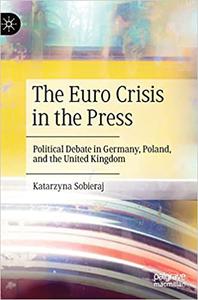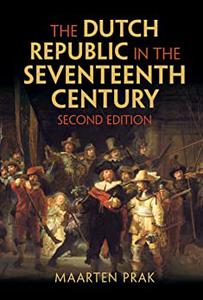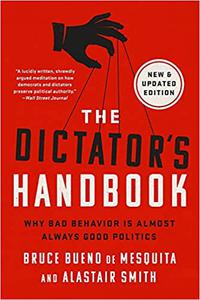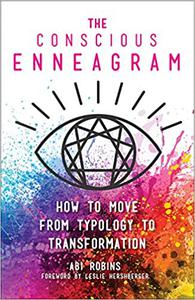
 |
 Ishay Rosen-Zvi, "The Evil Inclination in Early Judaism and Christianity" English | ISBN: 1108470823 | 2021 | 350 pages | PDF | 2 MB One of the central concepts in rabbinic Judaism is the notion of the Evil Inclination, which appears to be related to similar concepts in ancient Christianity and the wider late antique world. The precise origins and understanding of the idea, however, are unknown. This volume traces the development of this concept historically in Judaism and assesses its impact on emerging Christian thought concerning the origins of sin. The chapters, which cover a wide range of sources including the Bible, the Ancient Versions, Qumran, Pseudepigrapha and Apocrypha, the Targums, and rabbinic and patristic literature, advance our understanding of the intellectual exchange between Jews and Christians in classical Antiquity, as well as the intercultural exchange between these communities and the societies in which they were situated.  Katarzyna Sobieraj, "The Euro Crisis in the Press: Political Debate in Germany, Poland, and the United Kingdom" English | ISBN: 3031138805 | 2022 | 198 pages | PDF | 4 MB This book offers a comparative study of the political debate on the Euro crisis in the press. In the tradition of Critical Discourse Analysis, it investigates the ways in which discourse produces and reproduces social domination, and demystifies the hegemony of specific discourses. Combining quantitative content-based and qualitative text-based analyses, the book examines the discursive constructions of the crisis in a selection of broadsheet newspapers in Germany, Poland, and the UK, and discloses their ideological foundations. The analysis of the representations of the crisis, social actors and their agency, and legitimating strategies, including the use of metaphors, demonstrates how neoliberalism determined the hegemonic discourse on the Euro crisis. It resulted in ideologically biased discursive constructions that created and legitimised an image of non-agentic social change. The book will appeal to an international audience of discourse and media studies. It will be of interest to university teachers, graduate and undergraduate students and researchers of international and comparative media studies, political communication, linguistics, and politics.  The Essential Vegan Indian Cookbook: 100 Home-Style Classics and Restaurant Favorites By Lakshminarayan, Priya 2021 | 67 Pages | ISBN: 1638072019 | PDF | 6 MB Spice up your menu with vegan Indian recipesIndian cuisine is packed with delicate flavors, savory spices, and hearty vegetables, making it ideal for vegans and veggie-lovers. This Indian vegan cookbook is an essential guide for cooking up traditional plant-based delicacies and restaurant classics with a vegan twist. Whether you're looking to expand your palate or find animal-free alternatives to your favorites, you can create authentic Indian food at home with expert guidance and mouthwatering recipes.Use this complete vegan Indian cookbook and enjoy:An Indian cooking primer-Discover traditional cooking techniques, vegan substitutions, and money-saving shopping tips.A complete shopping guide-Learn which staple spices and vegetables to keep on hand to ensure you always have the necessities for cooking delicious Indian food.Diverse recipes-Cook regional favorites and traditional dishes from all across India, like Eggplant Lentil Curry, Tofu Saag, and Cauliflower Tikka Masala.Create classic dishes and discover new favorites with the Essential Vegan Indian Cookbook.  The Essential Cook's Kitchen : Traditional Culinary Skills, From Breadmaking and Dairy to Preserving and Curing by Alison Walker English | 2018 | ISBN: 1911127667 | 195 Pages | True PDF | 56 MB  The Dutch Republic in the Seventeenth Century, 2nd Edition English | 2023 | ISBN: 1009240595 | 324 Pages | PDF | 14 MB Rembrandt, Hals and Vermeer are still household names, even though they died over three hundred years ago. In their lifetimes they witnessed the extraordinary consolidation of the newly independent Dutch Republic and its emergence as one of the richest nations on earth. As one contemporary wrote in 1673: the Dutch were 'the envy of some, the fear of others, and the wonder of all their neighbours'. During the Dutch Golden Age, the arts blossomed and the country became a haven of religious tolerance. However, despite being self-proclaimed champions of freedom, the Dutch conquered communities in America, Africa and Asia and were heavily involved in both slavery and the slave trade on three continents. This substantially revised second edition of the leading textbook on the Dutch Republic includes a new chapter exploring slavery and its legacy, as well as a new chapter on language and literature.  Noah Galuten, Iliza Shlesinger, "The Don't Panic Pantry Cookbook: Mostly Vegetarian Comfort Food That Happens to Be Pretty Good for You" English | ISBN: 0593319834 | 2023 | EPUB | 240 pages | 65 MB This is the cookbook that seeks to answer the eternal question: "What am I supposed to eat?" Here the chef and writer Noah Galuten, host of the charmingly self-deprecating YouTube series "Don't Panic Pantry," serves up convenient, healthily delicious, mostly vegetarian comfort food, teaching you how to prepare meals and snacks you're genuinely excited to eat. With a Foreword by Iliza Shlesinger.  Bruce Bueno de Mesquita, "The Dictator's Handbook: Why Bad Behavior is Almost Always Good Politics" English | ISBN: 1541701364 | 2022 | 400 pages | EPUB | 3 MB Now featuring a new chapter on the rise of illiberalism worldwide.  Daniel M. Brinks, "The DNA of Constitutional Justice in Latin America: Politics, Governance, and Judicial Design " English | ISBN: 1107178363 | 2018 | 278 pages | PDF | 3 MB In recent times there has been a dramatic change in the nature and scope of constitutional justice systems in the global south. New or reformed constitutions have proliferated, protecting social, economic, and political rights. While constitutional courts in Latin America have traditionally been used as ways to limit power and preserve the status quo, the evidence shows that they are evolving into a functioning part of contemporary politics and a central component of a system of constitutional justice. This book lays bare the political roots of this transformation, outlining a new way to understand judicial design and the very purpose of constitutional justice. Authors Daniel M. Brinks and Abby Blass use case studies drawn from nineteen Latin American countries over forty years to reveal the ideas behind the new systems of constitutional justice. They show how constitutional designers entrust their hopes and fears to dynamic governance systems, in hopes of directing the development of constitutional meaning over time.  The Courage of Their Convictions By Peter H. Irons 2016 | 432 Pages | ISBN: 1501140892 | EPUB | 2 MB The Courage of their Convictions cites sixteen landmark civil liberties cases and the individuals who challenged laws that they felt impinged upon their personal freedom and who took their battles to the nation's highest court of law."Thank goodness for the sixteen brave men and women who fought official intolerance all the way to the US Supreme Court. And thanks to the Peter Irons for presenting their moving personal reasons, in their own words, for questioning authority. Like Anthony Lewis's Gideon's Trumpet, this book presents constitutional law with a human face. It will be a classic." -Norman Dorsen, President, American Civil Liberties Union New York University Law School"A fascinating account of how complex, multi-faceted conduct by individual citizens is forced into narrow, legal categories for decision by our judicial system." -Thomas I. Emerson, Yale Law School  Abi Robins, "The Conscious Enneagram: How to Move from Typology to Transformation" English | ISBN: 1506465021 | 2021 | 245 pages | EPUB | 1187 KB The Enneagram is a powerful tool, with ancient roots and modern appeal, for detailing the human personality. It illuminates the painful truth of where we are and inspires us with the promise of where we could be. |